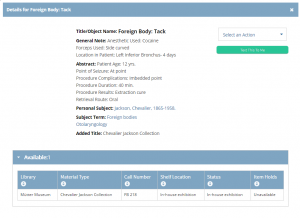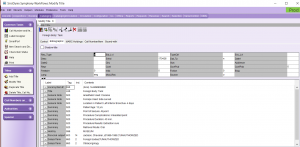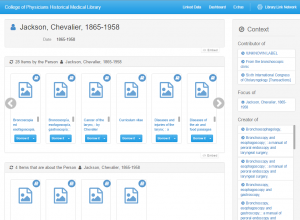~This post courtesy Polina Ilieva.
The Local Arrangements and Program Committees are busy preparing for the upcoming joint ALHHS/MeMA meeting in Los Angeles, May 9-10, 2018.
Our conference brings together archivists, librarians, museum professionals, educators, historians and representatives of allied professions and it is the place for our community to engage, network, and learn from each other’s experiences. The advent of social media, big data, and digital environments is changing the nature of the records we collect, their dissemination, as well as educational practices. The impact of this shift challenges some theoretical and methodological paradigms of our professions. The goal of this meeting is to examine critical issues in documenting, preserving, accessing, and teaching with health sciences collections in the newly emerging landscape.
Keynote Address: Miriam Posner, Assistant Professor of Information Studies and Digital Humanities, University of California, Los Angeles (UCLA)
The Program Committee welcomes your help in making this a thought provoking and stimulating conference. We are especially interested in proposals that feature:
- Digital medical humanities
- Role of health sciences collections in scholarly research
- Changing role of health sciences libraries/archives/museums
- How can digital methods and resources be used to engage users?
- Collaborating with donors, students, area studies, and community archives
- Sensitive materials and social justice — what impacts do concepts such as radical empathy have on how material is represented in digital collections or exhibitions
- Collecting and contextualizing social media, email, hardware, and software
- Collections as data
Session Formats: The Program Committee encourages submission of proposals that may include, but are not limited to, the following formats:
- Individual papers: Speakers should expect to give a presentation of no more than 15 minutes followed by 10 minutes of discussion. Individual papers will be combined into panels.
- Panel Discussion: Open session with a panel of three (3) to four (4) individuals informally discussing a variety of theories or perspectives on the given topic(s). Please confirm participation with all panelists before submitting the panel proposal.
- Traditional: Open session with two to three fully prepared papers of fifteen (15) minutes each and a comment and discussion period after the papers.
- Special Focus Session: 50-minute session designed to highlight innovative archives or museum programs, new techniques, and research projects. Audience participation is encouraged.
Please submit your proposal (no more than 350 words) through the Session/Program Proposal Form: https://goo.gl/forms/7eQYTWFnUgAlCx0T2
The deadline for submitting session proposals is Friday, December 1th, 2017. Decisions about acceptance will be made by December 15th, 2017.
If you have any questions please contact Polina Ilieva via phone (415) 476-1024 or email polina.ilieva@ucsf.edu.
We are looking forward to seeing you in Los Angeles!
Your Program Committee:
Polina Ilieva, University of California, San Francisco (chair)
Beth Lander, College of Physicians of Philadelphia
Jennifer Nieves, Case Western Reserve University
John Rees, National Library of Medicine (History of Medicine Division)






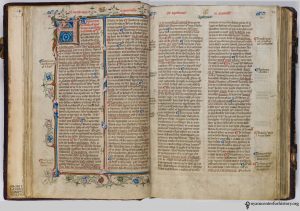 The New York Academy of Medicine Library announced
The New York Academy of Medicine Library announced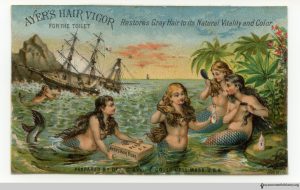 Also featured is The William H. Helfand Collection of Pharmaceutical Trade Cards, which contains approximately 300 colorful pharmaceutical trade cards produced in the U.S. and France between 1875 and 1895 that were used to advertise a wide range of goods in the nineteenth century. Such cards are now regarded as some of the
Also featured is The William H. Helfand Collection of Pharmaceutical Trade Cards, which contains approximately 300 colorful pharmaceutical trade cards produced in the U.S. and France between 1875 and 1895 that were used to advertise a wide range of goods in the nineteenth century. Such cards are now regarded as some of the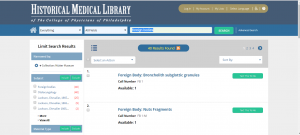 catalogs in the United States that merges descriptions of, and access to, library, archival and museum collections.
catalogs in the United States that merges descriptions of, and access to, library, archival and museum collections.